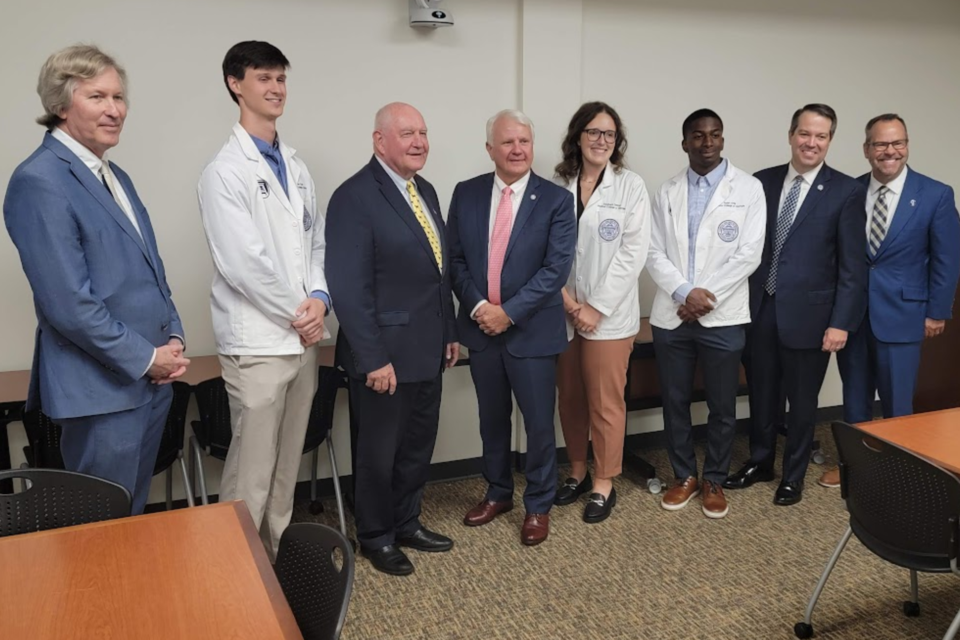In a landmark event for the region, Georgia Southern University's Savannah Campus celebrated the ribbon cutting of its new Medical College of Georgia at Georgia Southern University Medical Campus on Friday, July 26, 2024.
Friday's ceremony, attended by prominent state and university officials, marks a significant expansion in medical education aimed at addressing Georgia's physician shortage and enhancing healthcare in the southeastern part of the state.
After the ribbon cutting, University and State leaders participated in a press conference. The Grice Connect team was there and brings you this report from one of the most historic moment's in Georgia Southern University's history -- next to gaining University status and re-starting the football program.
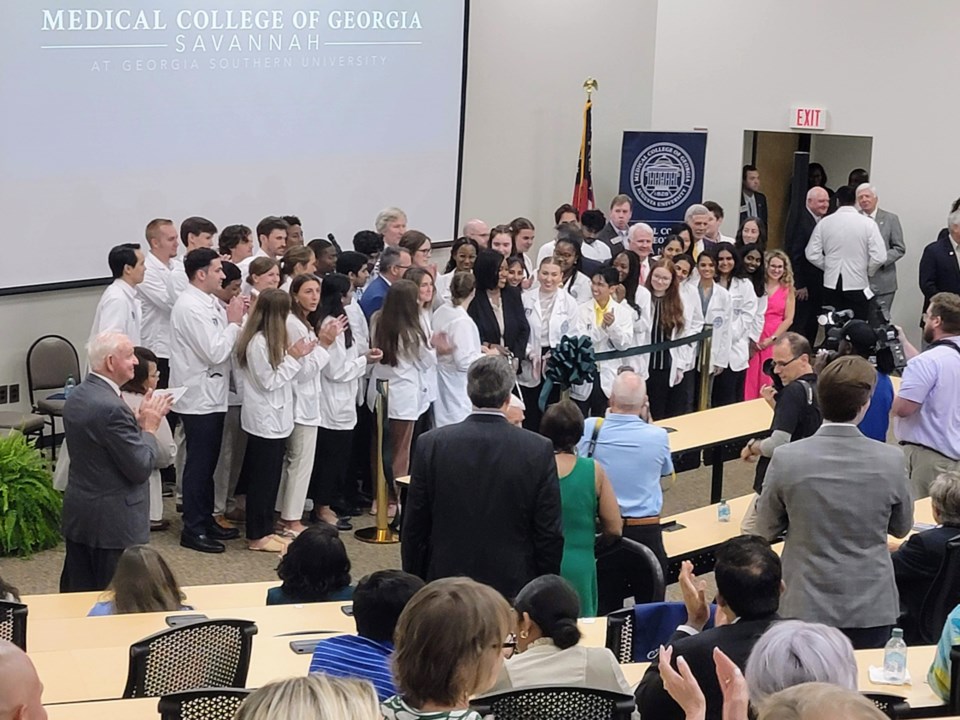
Leaders agree this is a historic moment
Sonny Perdue, Chancellor of the University System of Georgia, expressed his enthusiasm for the swift realization of the project, highlighting the collaboration between the university and local medical professionals.
"It's amazing how quickly this came together," Perdue noted, emphasizing the importance of the new campus in meeting the growing healthcare needs of Georgia.
Speaker of the Georgia House, Jon Burns, underscored the strategic choice of Savannah for this expansion. He pointed out the unique advantages offered by the region and the commitment from the General Assembly to support this initiative.
"We're committed to making Georgia the best place to live, raise a family, and have the best healthcare available," Burns stated, emphasizing the positive impact on local communities.
Kyle Marrero, President of Georgia Southern University, shared the excitement among students and faculty, noting the university's strong track record in producing healthcare professionals. He highlighted the unique opportunities for collaboration between nursing, physical therapy, and medical students, which will set the program apart and ensure comprehensive training for future healthcare providers.
The full transcript of the press conference follows, providing detailed insights from each of the key speakers and their visions for the future of medical education in Georgia.
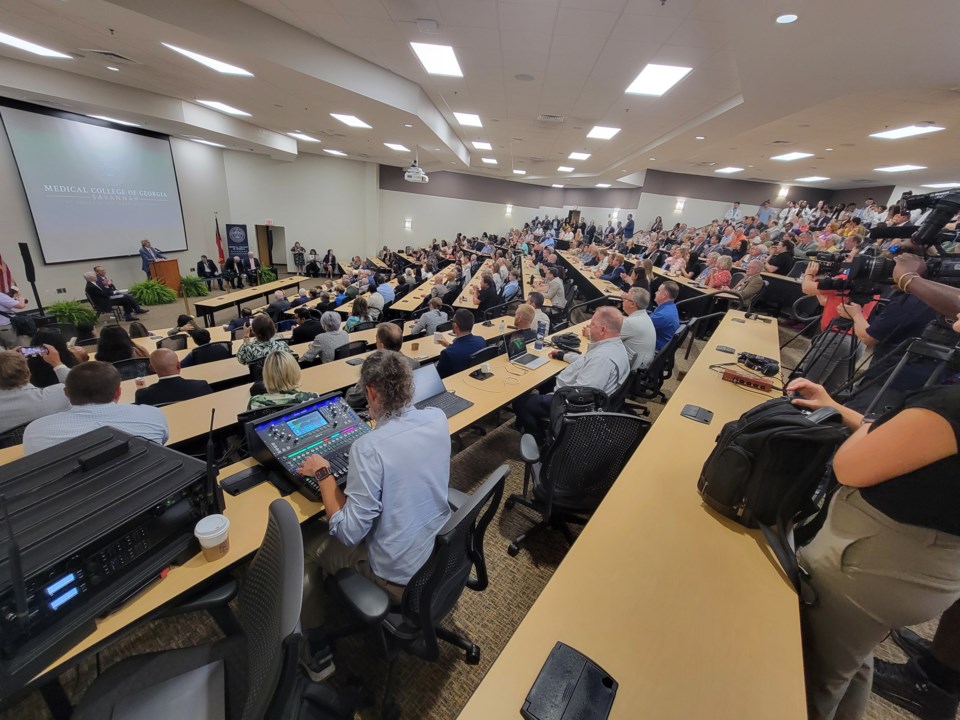
Sonny Perdue, Chancellor, University System of Georgia:

Q: Take us through your excitement about what's happening here today.
Perdue: There's a lot of excitement here in Savannah from the Armstrong Campus of Georgia Southern with the addition of the Medical College of Georgia Medical Campus. It's amazing how quickly this came together, just a little over a year since the decision was made and the legislature appropriated the money. This expansion means more doctors for Georgia and a great integration with current medical professionals here. It's a growing part of our state, and we want our medical education to keep up with that.
Jon Burns, Speaker of the Georgia House:
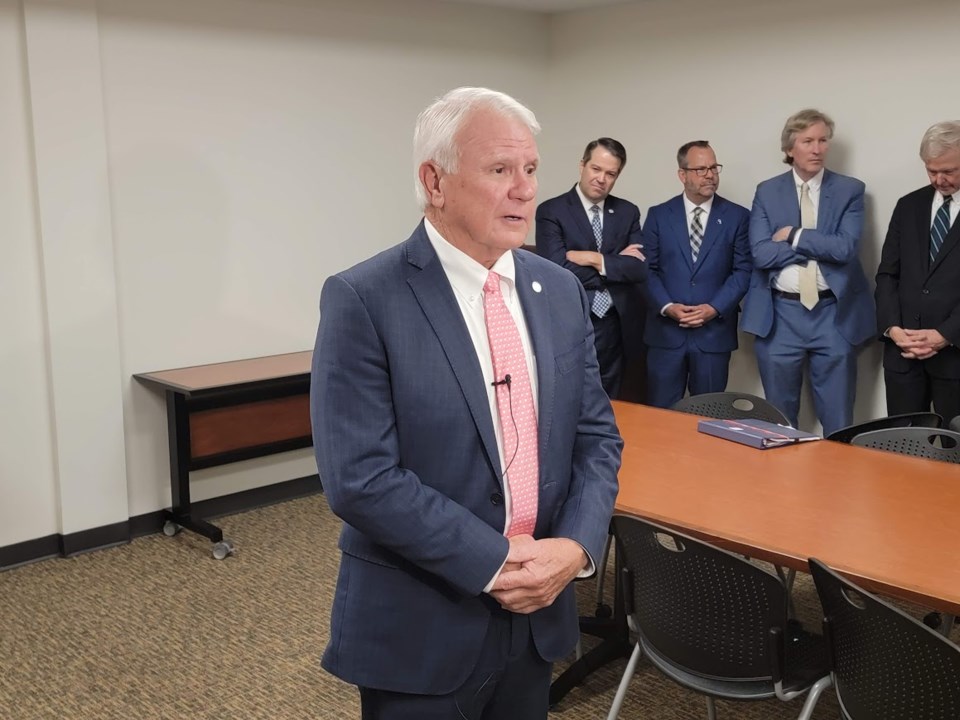
Q: Mr. Speaker, it's a great day for your district and the state. Why did you choose Savannah for this growth?
Burns: Southeast Georgia has a lot to offer all Georgians. We have two world-class institutions, Georgia Southern University and the Medical College of Georgia, coming together. The medical education here will be second to none. We're committed to supporting this from the General Assembly, working with Governor Kemp to make Georgia the best place to live, raise a family, and have the best healthcare available.
Q: What does this mean for people living in southeastern Georgia?
Burns: It's critical. As these young physicians receive their training here, it makes healthcare more accessible. It helps address our physician shortage, ensuring more doctors stay in Georgia to care for our citizens.
Kyle Marrero, DMA, President, Georgia Southern University:
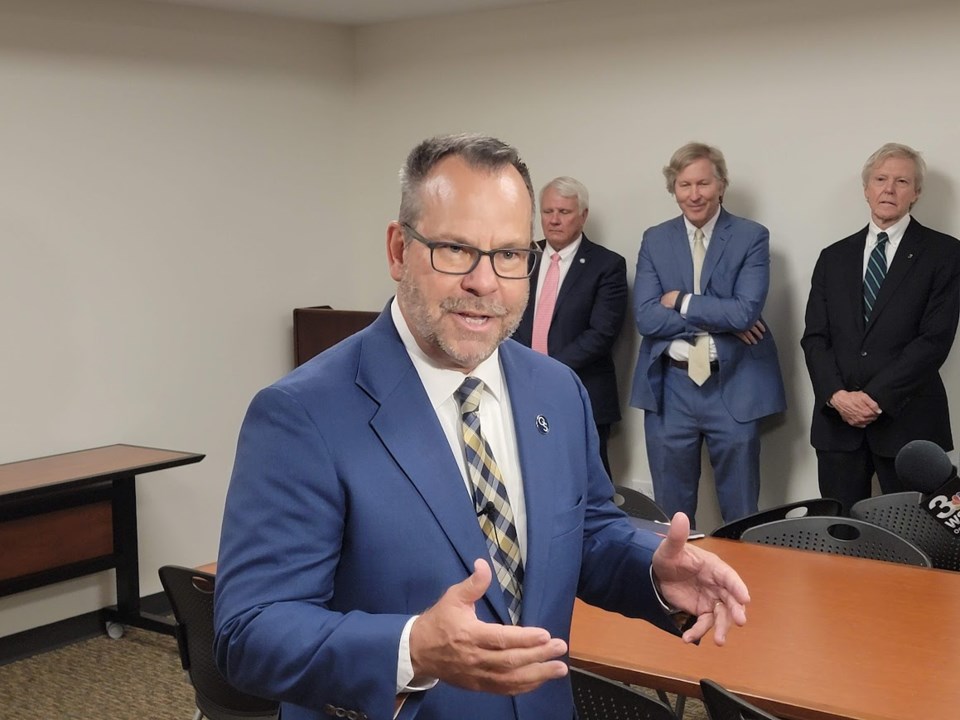
Q: President Marrero, you cited numbers in your speech this morning that 20% of the students at Georgia Southern are in some sort of Allied Health Program. Obviously, that meets a tremendous need, but what do you think's attracting them to Georgia Southern?
Marrero: Well, Georgia Southern's Armstrong and Statesboro campuses have been leaders in producing healthcare professionals. With 5,300 majors in our College of Health Professions and one out of every five undergraduate degrees in health professions in Georgia being from Georgia Southern, we've already been leaders in that pipeline. This partnership with the Medical College of Georgia is a natural fit and, as we say, a no-brainer.
Q: What's the excitement like here at Georgia Southern, knowing that this will be a crucial part of the Armstrong campus?
Marrero: Our current nursing students, PT students, and DNPs are thrilled to work hand-in-glove with the incoming medical students. They'll be in simulation labs working together, which is a unique opportunity that few places in the state offer. This collaboration will set us apart.
Q: As we see this program flourish and grow, what are you most looking forward to for the future of this school on the Georgia Southern campus?
Marrero: We see further opportunities for partnership, including with the Dental College of Georgia. With the state's projected growth of 20-30% in the next 10 years, healthcare is at the forefront. Georgia Southern, Augusta University, the University System of Georgia, and our partners in the legislature will solve this together.
Russell Keen, EdD, President, Augusta University:
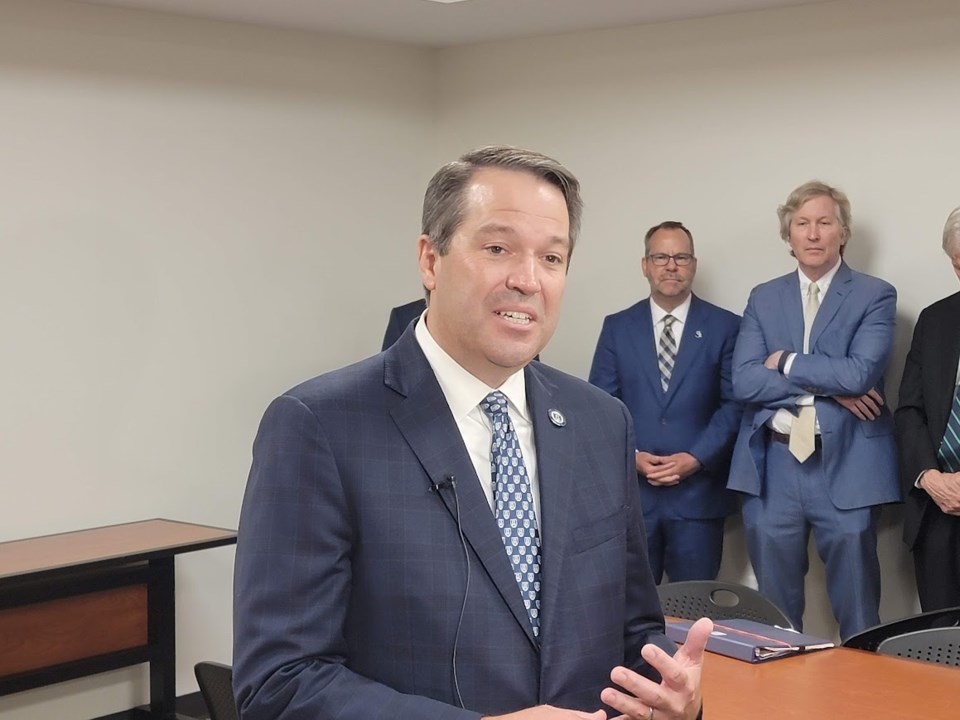
Q: President Keen, just over 20 days, and you're announcing a medical school. Is this a dream or reality?
Keen: This is a dream that has become reality with the help of our partners. We're expanding from training 80 medical students for two years to 160 for all four years. It's historic for Savannah, the Southeastern region, and Georgia. We’re addressing the physician shortage and staying true to our mission.
Q: What does it mean to you to be part of increasing healthcare?
Keen: We are celebrating almost 200 years of putting physicians and healthcare providers all over Georgia. Our mission started in Augusta, but the entire state is our campus. Increasing our medical students means more healthcare providers staying in Georgia.
David Hess, MD, MCG Dean:
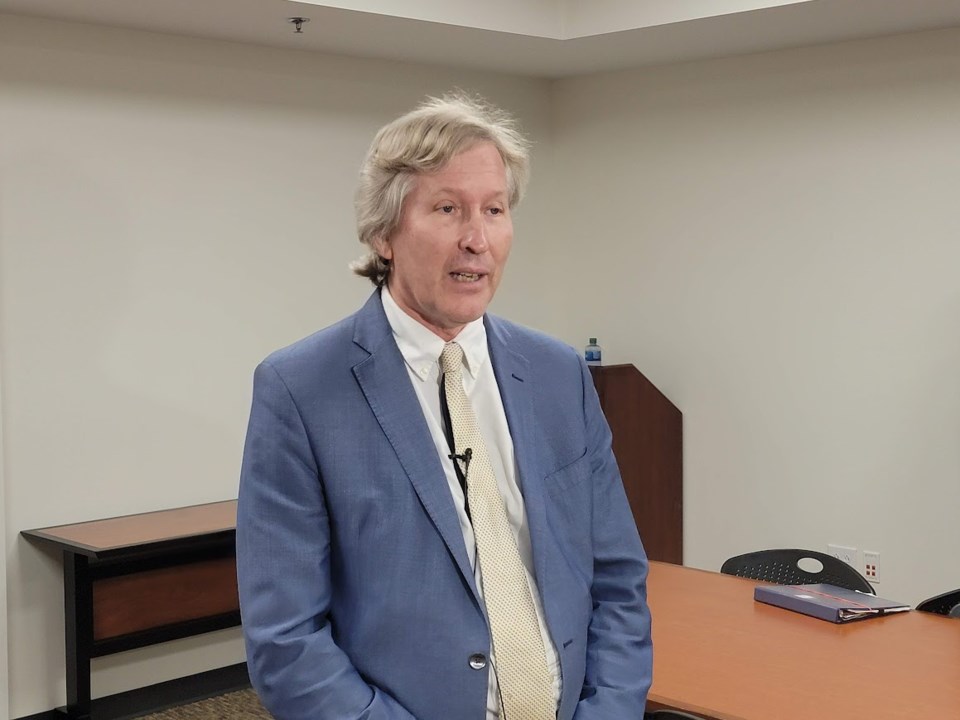
Q: Dean, you've mentioned the speed of putting this project together and the talent you've recruited. Can you speak to that?
Hess: Recruiting faculty was fast, thanks to the appeal of Savannah. We assembled the medical school quickly, with great support from local physicians. The three-year curriculum we implemented gets doctors into Georgia quicker. Our hope is to grow the number of students and address the severe physician shortage in Southern Georgia.
Paul Hinchey, President and CEO, St. Joseph's/Candler Health System:
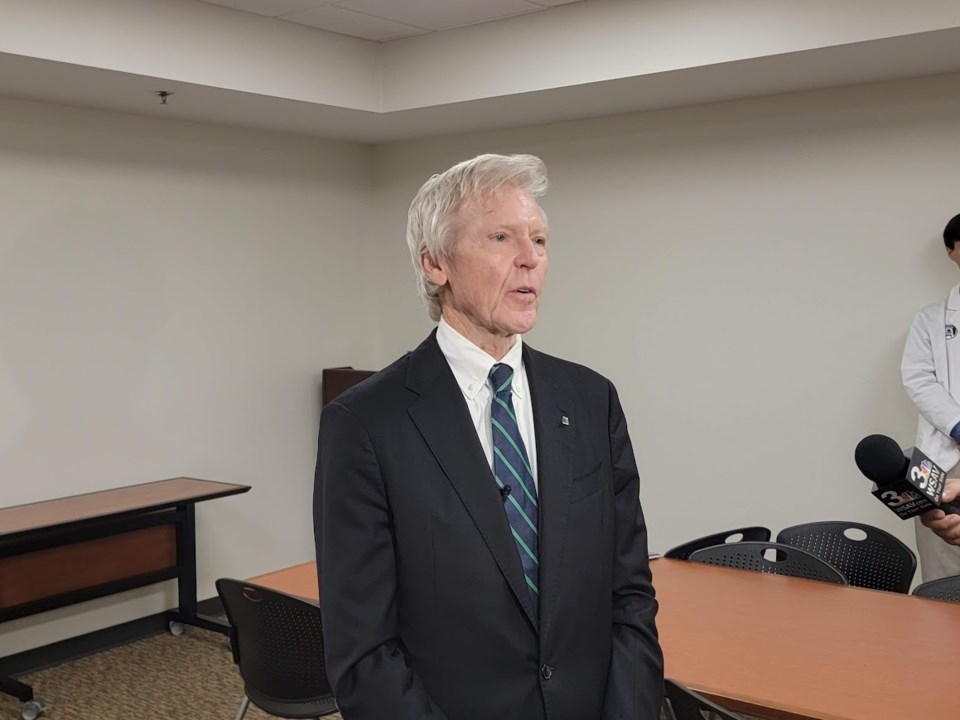
Q: What does this mean for healthcare in our communities?
Hinchey: We’re at Ground Zero, ensuring physicians get exposure to working in neighborhoods. This partnership is unique and vital. People deserve healthcare where they live or work. This public-private model is a great example for the country, providing real-life training for students.
Q: How does the medical school aim to address the local healthcare worker shortage?
Hinchey: We're addressing shortages in nursing, pharmacy, and physicians. We've increased training programs and hired graduates. This hands-on experience helps students decide their specialties and meet community needs.
Medical College of Georgia First-Year Students:
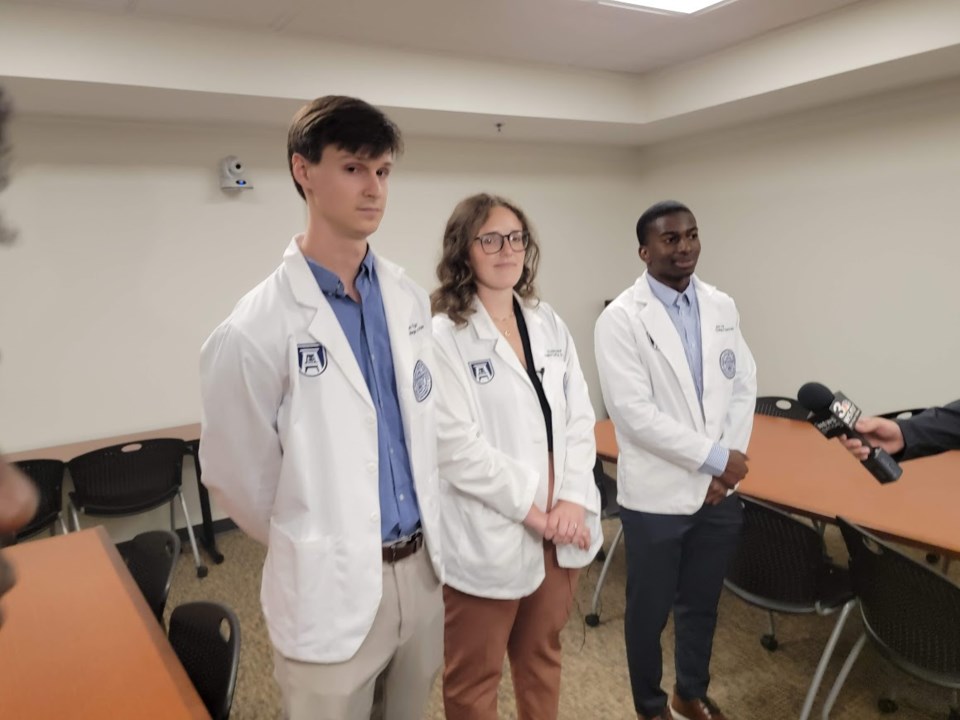
Q: Tell us where you're from and your excitement about being part of this historic moment.
Brian Egan: I'm from Savannah. Being part of the first class here is an honor. It's always been my dream to attend the Medical College of Georgia, especially in my hometown.
Elizabeth Dittmer: I'm from Richmond Hill. Learning from the physicians I grew up seeing is special. It's an honor to be part of this first class.
Rylan Artis: I'm from Marietta but have been in Savannah for three years. I'm excited to stay in this community and start next week.
Q: What attracted you to this program besides being close to home?
Egan: The small class size is a big draw. It allows for personal relationships with classmates and professors.
Dittmer: Meeting the caring and supportive faculty made me choose this campus. It feels like home.
Artis: The support from faculty and the one-on-one time with professors attracted me. They provide the resources we need to succeed.
Q: Do you think you'll serve in a rural environment or a larger community?
Artis: I want to stay in Savannah and serve wherever there is a need.
Q: What are you most looking forward to in medical school?
Egan: Leaning on my classmates and remembering my why will help me through the tough times.
Dittmer: I'm excited for the collaborative learning environment and hands-on clinical rotations.
Artis: Watching us grow as individuals and physicians is what I'm looking forward to the most.
Q: Is there anything else you'd like the community to know?
Egan: We aim to be active members of the Savannah community, not just students.
Dittmer: Embracing and serving medically underserved communities is important to us.
Artis: Understanding the community's needs is crucial for us to provide the best care.

